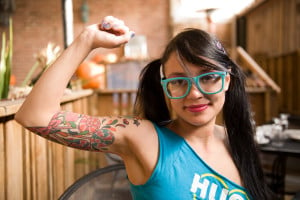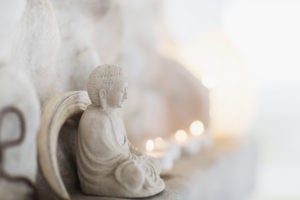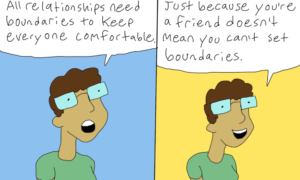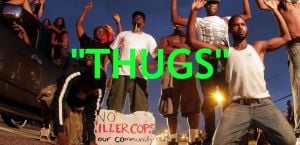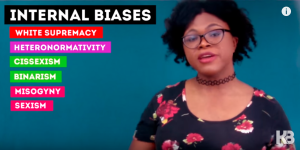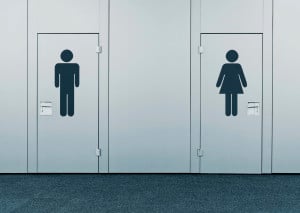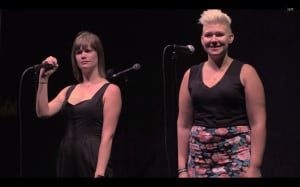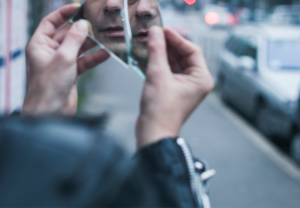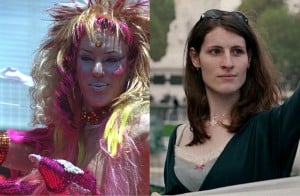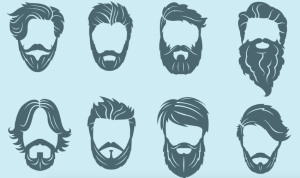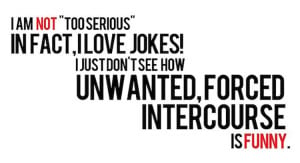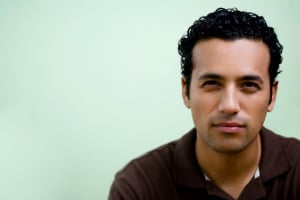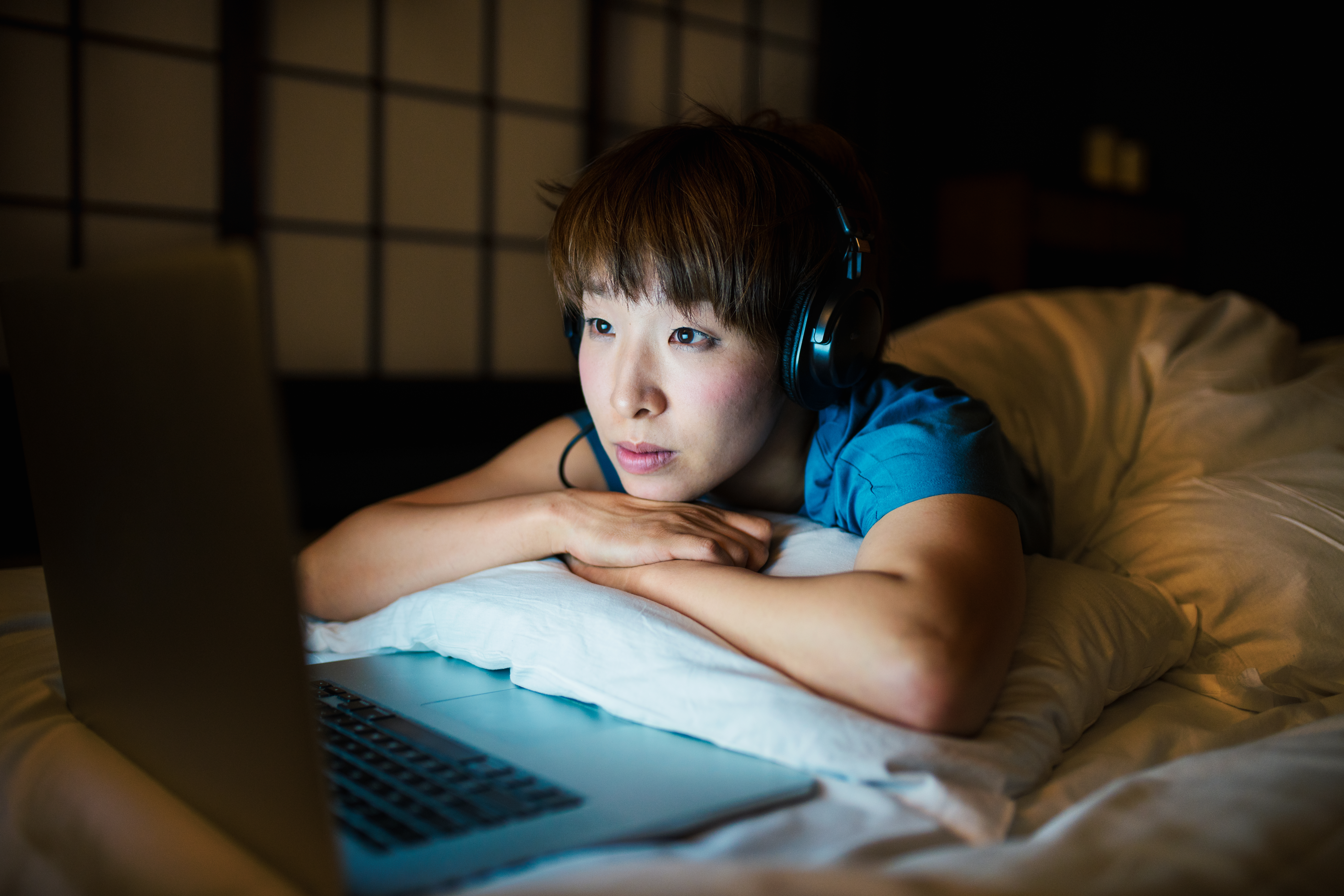
Person wearing headphones in bed on their laptop.
It sometimes seems counterintuitive to be vulnerable online — to share ourselves in a wholehearted, honest, and often raw way. After all, online harassment is common and it’s difficult enough to be plugged in these days.
But there’s something to be said for being vulnerable in online spaces like social media and other communities, as long as you can find a way to do it in a safe space.
When I first started using the Internet and social media regularly, I was in middle school and had a MySpace account. On MySpace, I was pretty vulnerable for a 13-year old, sharing my poetry and weekly blogs about what was going on in my life.
So when I decided I wanted to come out as bisexual, my first thought was, “I can tell everyone online.”
I had plenty of connections online, including both people I knew offline and those I’d met strictly through social media. MySpace was, in many ways, my first real LGBTQIA+ space, because I didn’t know many other people from the community offline.
Although it wasn’t 100% smooth sailing, coming out to my online community was a powerful step for me at the time. It allowed me to be my full, real self in many ways, both online and offline. And it helped me become a part of the LGBTQIA+ community and connect with others who understood what my experience was like.
Being vulnerable online can be an act of radical self-love and visibility, and can help you create a vibrant and supportive online community.
Here are a few reasons why you might want to try being vulnerable online:
1. You can build a valuable community
If we’re being truthful, vulnerability is hard. It means opening up some of the most tender parts of ourselves to others, and can be painful and really scary.
A lot of people, especially marginalized people, may not have access to a supportive community in their daily lives. So an online community can be a great space to make friends, support one another, offer resources, and feel like you’re a part of something larger.
Online communities can also be more accessible. Though it does require an Internet connection and a device (like a laptop or smartphone), it’s relatively inexpensive compared to traveling across the country or internationally to meet up with a community.
There are also fewer barriers to access for disabled people, who often rely on these online communities for social interaction.
I’ve built some very important online communities over the years, from the LGBTQIA+ forum for teens that I joined when I was in middle school to the private Facebook group that I’m currently a part of.
The Facebook group is designed to be a safe, supportive space where people can share their struggles and request that people either just listen, or give advice.
What I love about it is that even though we’re a diverse group of people with very different experiences, we’re all empathetic and open-minded about what others might be going through.
2. Vulnerability is tied to self-love
I’d like to say first that there are plenty of very valid reasons why people can’t be vulnerable.
Being your whole, authentic self in a visible way is a risk for marginalized people. Just like not everyone who is LGBTQIA+ can come out, not everyone can be vulnerable all the time.
But, if you are able to be vulnerable — even in measurable doses, such as in a private Facebook group with limited membership — it can be a very transformative experience.
It’s basically saying, “This is me. This is who I am, and I love who that person is. I’m not afraid to be myself.”
There’s an immense amount of privilege in the ability to do this. I am visibly queer, disabled, and talk openly about my low-income background. I have a lot of privilege as a white, thin, educated femme who has a supportive family and community.
I’ve never had to risk being thrown out of my home for being who I am, or worried seriously that I wouldn’t be able to find employment because of my visibility.
Over the years, I’ve shared a lot online: the fact that I’m a rape survivor; what it was like losing my mom young and my grieving process; how I handled my dad’s suicide attempt; my experience as a queer disabled person; what it was like to grow up poor.
I have put myself out there in ways that feel terrifying because it’s a revolutionary act as a multiply marginalized person to even exist in such a visible way. Every time I post a photo of myself with my bright lavender cane, I feel like I’m allowing the world to see me as I am.
People sometimes ask me why I share these things, especially now that I’ve published vulnerable essays with visible outlets like The New York Times and Cosmopolitan.
There’s no one answer for why I do it, but I feel like people who interact with me both offline and online are seeing the real me. I’m not constantly afraid that people will dig deeper and then reject me because I’m giving them that option at the outset.
3. Sharing ourselves helps give others the courage to do the same
There’s something powerful about seeing other people speaking up about something you’ve experienced, which is part of why #MeToo went viral.
Talking about things like mental illness, disability, and trauma breaks down stigma and dismantles stereotypes.
It can also offer a valuable resource to someone else — if you’re talking about your journey to finding a Black healthcare provider who treats the trans community with compassion, you might have insight that someone else can use.
There isn’t always built-in access to information; a lot of people crowdsource from their trusted communities.
I gained a lot of my courage to be visibly disabled and proud from my disability community. I’m friends, on and offline, with a lot of disabled people, and there was something powerful for me in seeing hashtags like #cripplepunk and #DisabledAndCute.
It empowered me not to hide my cane in photos, and when I met friend and activist Karin Hitselberger, we made sure to show off our mobility aids in the photo we took together.
It’s also been a great place to look for resources. I’m plugged into several disability communities online, which are a great tool for things like vetting and selecting a new physician, how to talk about my symptoms with a doctor, advocating for myself as a patient, and supplementary and alternative healthcare options.
4. It’s a small revolutionary act
How many times have you been told that you “shouldn’t” talk about certain topics, like racism, mental health, or trans rights? Have you ever been tone policed? Has someone asked you to be less visible, perhaps suggesting that there’s really no need to shove your sexuality or gender identity or racial identity down other peoples’ throats?
Being radically vulnerable and real online is a form of revolution, especially if you’re marginalized. So is practicing self-love, and being visible.
It’s important to note that just existing and surviving is a radical act, too, and there are so many people who can’t choose to be vulnerable publicly. There are situations where I might not be able to be as vulnerable as I’d like.
I’ve definitely held back on talking about aspects of my disability on social media because I don’t feel like I’m financially secure or experienced in my career enough to take the risk that future employers might discriminate against me. It’s a choice I have to weigh every time I post about being disabled — will this jeopardize my future?
When I am able to be vulnerable, though, it feels radical. Society doesn’t make room for queer disabled people from low-income backgrounds, and it’s not often we see visible mobility aids, particularly if the person is young and stylish.
I style my cane with pride; it reminds me that my visibility is a political act, and maybe one that will inspire a teenager not to be afraid of needing mobility aids and other assistive devices like I was.
***
I always come back to my early years online — as a queer, disabled middle-schooler who was low-income — as an example of why vulnerability can be so important.
In my offline life, I was being harassed and assaulted daily at school for being queer and disabled, and I felt the pain of not having much money. I couldn’t frequently take the trip to see my two best friends, who lived an hour away because we didn’t have our own car and a taxi ride was too expensive.
I really needed a supportive community who could see me for who I was and encourage me to keep being that person, even as many people in my offline life were making me want to hide.
When I joined a forum for LGBTQIA+ teens I found that support system.
I finally had a place to talk about queer sex education, gender identity issues, coming out, and asking girls out — and I could also just be me without the constant fear that someone would threaten me for doing so.
It was the first time I realized how vital being myself online could be. Through being vulnerable, I even made an online friend who I’ve kept in touch with to this day; last year, she came and visited me from another state and we finally met in person for the first time.
She was one of the first openly bisexual people I’d ever interacted with and showed me that it was okay to be queer and proud.
So, even though it scares me sometimes, whenever I can, I share things like my coming out story online. It may feel like a small radical act, but it’s a piece of a necessary revolution.
[do_widget id=’text-101′]
Alaina Leary is an Everyday Feminism Reporting Fellow. She is a Bostonian currently studying for her MA in publishing at Emerson College. She’s a disabled, queer activist and is on the social media team at We Need Diverse Books. She can often be found re-reading her favorite books and covering everything in glitter. You can find her at her website or on Instagram and Twitter @alainaskeys. Read her articles here.
Search our 3000+ articles!
Read our articles about:
Our online racial justice training
Used by hundreds of universities, non-profits, and businesses.
Click to learn more





